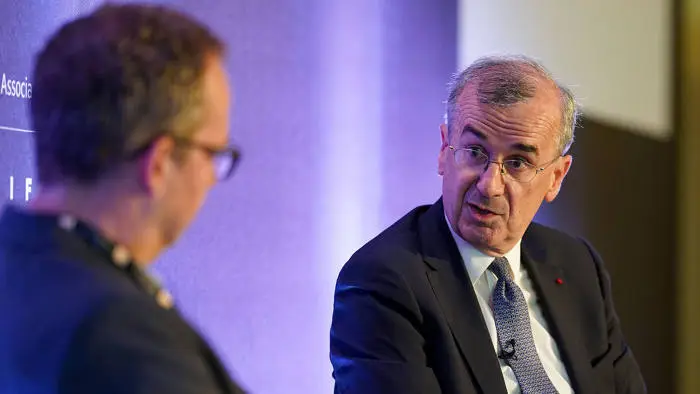Worried about how Facebook’s new Libra cryptocurrency may be used to launder money or other criminal activity, France is putting together a task force to study it.
France has recently announced that it has put together a task force to evaluate the risks that cryptocurrencies like Libra pose to countries. The task force was ordered by the governor of the central bank of France, Francois Villeroy de Galhau.
The Task force will be composed of members from the Group of 7 nations (G7) headed by Benoit Coeure, a European Central Bank board member. The G7 includes Canada, France Germany. Italy, Japan, US and UK.

The main focus of the task force will be to evaluate the potential impact of the cryptocurrency on crime and the regular fiat currency. The reason that Facebook’s Libra is generating a greater amount of attention from the countries of the world is obvious. Bitcoin and other cryptocurrencies have not had the backing of so large a corporation behind it. Much of the reason why people still distrust crypto is because it is not easy to establish a central group or person. However, with Facebook backing a cryptocurrency and also making it a relatively stable one, it may see widespread adoption. Facebook will most likely integrate it into its marketplace and other services. With a currency backing its web services, there will be a potential explosion of online shopping which does not require any fiat money. This is what the authorities fear.
Cryptocurrencies have always been a threat to the establishment. This was by design. The main goal was to link people to people without a central authority in place. The currency would not be affected by elections, bad policy and other red tape of governing bodies. A lot of governments have banned the technology either due to ignorance or fear of the lack of control.
The G7 task force smells a lot like government control strategies on a technology built to be peer-to-peer. This decision has a lot of implications on the future of the adoption of cryptocurrencies. We may be faced with a dilemma in the future. Either the banking concerns will not allow cryptocurrencies the place they deserve in an economy or they will find a way to control it. Either way, cryptocurrency may be facing problems in the future. However, there is a strong possibility that new technology in the future may bring about some respectability for cryptocurrencies among the economies of the world.
The concerns were voiced for the first time by France’s finance minister, Bruno Le Maire, when he claimed that there was a possibility that Libra from Facebook could replace traditional currencies.
“It is out of question’’ [that Libra be allowed] “become a sovereign currency,” Le Maire said at the time. “It can’t and it must not happen.”
Villeroy claimed that his country was “open to innovation” but reiterated that their first concern must always be regulation. This is in direct opposition to the very idea of cryptocurrency.

Facebook, for its part has tried to be open about the governing of the cryptocurrency. It introduced Libra to the world on June 18th, providing some details in a white paper that they had published. The paper stated that the company had set up a subsidiary, Calibra, and an independent consortium, Libra Association, to develop and govern the cryptocurrency.
Unlike most currencies, Libra will be a stablecoin. Basically, it will be connected to regular currency in terms of determining its value. Facebook intends for Libra to be used a replacement Paypal of sorts. Users can convert regular currencies into crypto and trade them internationally at a lower transactional cost.
Villeroy showed his stance on the issue of the stablecoin as he believes that the concept has not been defined sufficiently by regulators to allow its broad implementation and use.
Other member nations have also expressed their concerns about Libra and have begun to study possible regulatory issues that may arise from its implementation.
The U.S. Senate Committee on Banking, Housing, and Urban Affairs has planned a hearing on July 16 where they will be discussing the pros and cons of Libra.
German European Parliament member Markus Ferber also said that companies “must not be allowed to operate in a regulatory nirvana when introducing virtual currencies.”


